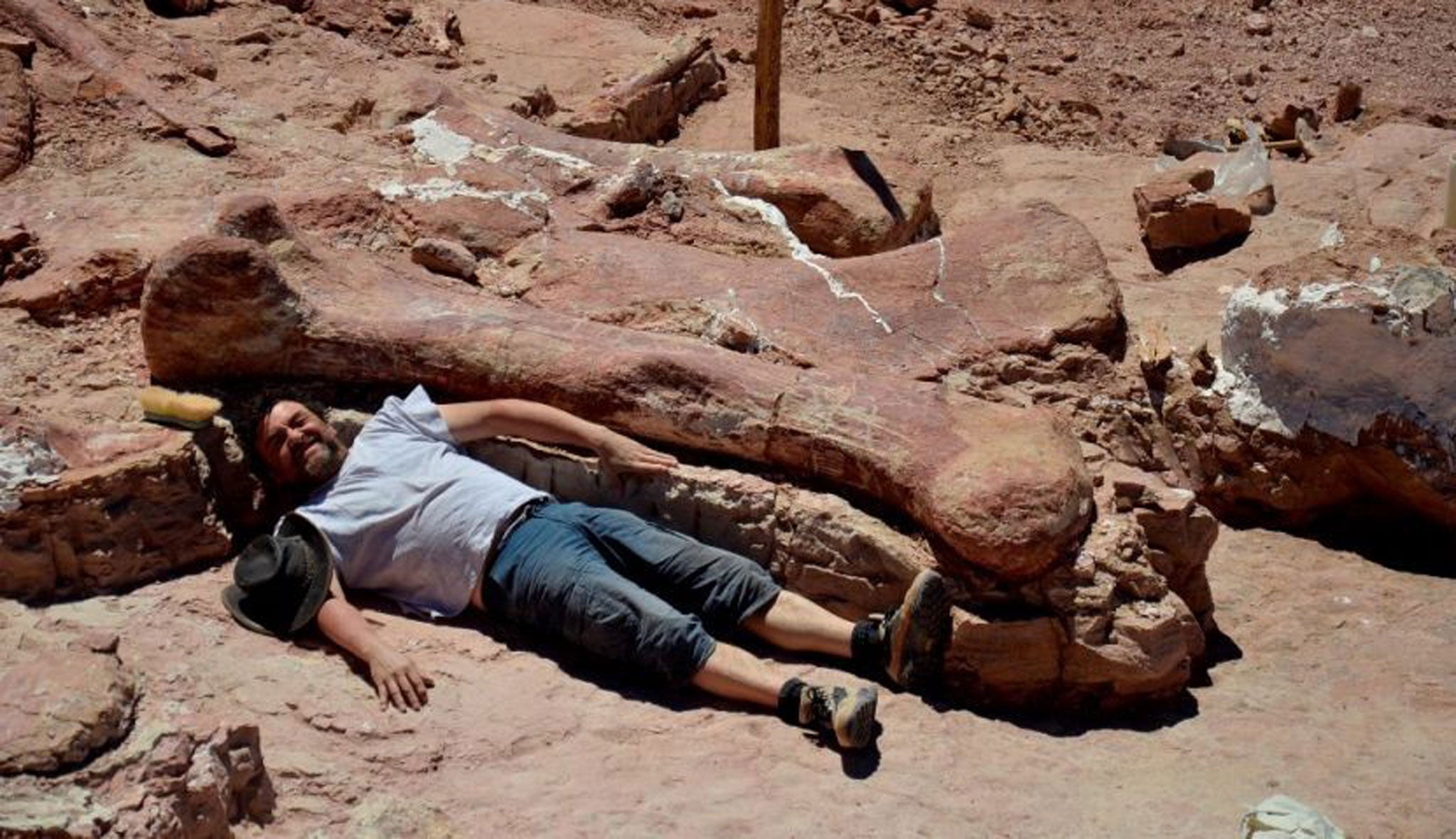'World's biggest dinosaur' unearthed in Argentina desert
Palaeontologists believe the creature would have weighed 77 tonnes

If you thought they don’t come much bigger than the Tyrannosaurus rex and the Argentinosaurus then think again – scientists in Argentina have uncovered the bones of a creature believed to be the world’s biggest dinosaur.
According to the measurements of its gigantic thigh bones, the herbivore would have been 40m (130ft) long and 20m (65ft) tall, the BBC reported.
Palaeontologists think it is a new species of titanosaur – part of a diverse group of sauropod dinosaurs that were characterised by their long necks and tails and small heads – dating from the Cretaceous period.
The mega dino would have weighed in at 77 tonnes (the equivalent of approximately 14 elephants), making it seven tonnes heavier than the previous record holder Argentinosaurus.
A farm worker discovered the fossilised remains in desert land near La Flecha, which is around 250km (135 miles) west of Trelew, Patagonia.
Scientists from the Museum of Palaeontology Egidio Ferugliom excavated the fossils and found seven partial skeletons, amounting to around 150 bones.
The researchers, led by Dr Jose Luis Carballido and Dr Diego Pol, told the BBC: “Given the size of these bones, which surpass any of the previously known giant animals, the new dinosaur is the largest animal known that walked on Earth.
"Its length, from its head to the tip of its tail, was 40m.
“Standing with its neck up, it was about 20m high - equal to a seven-storey building.”
They added that the creature, which lived in the forests of Patagonia between 95 and 100 million years ago, was yet to be named.
“It will be named describing its magnificence and in honour to both the region and the farm owners who alerted us about the discovery,” the researchers said.
Join our commenting forum
Join thought-provoking conversations, follow other Independent readers and see their replies
Comments
Bookmark popover
Removed from bookmarks